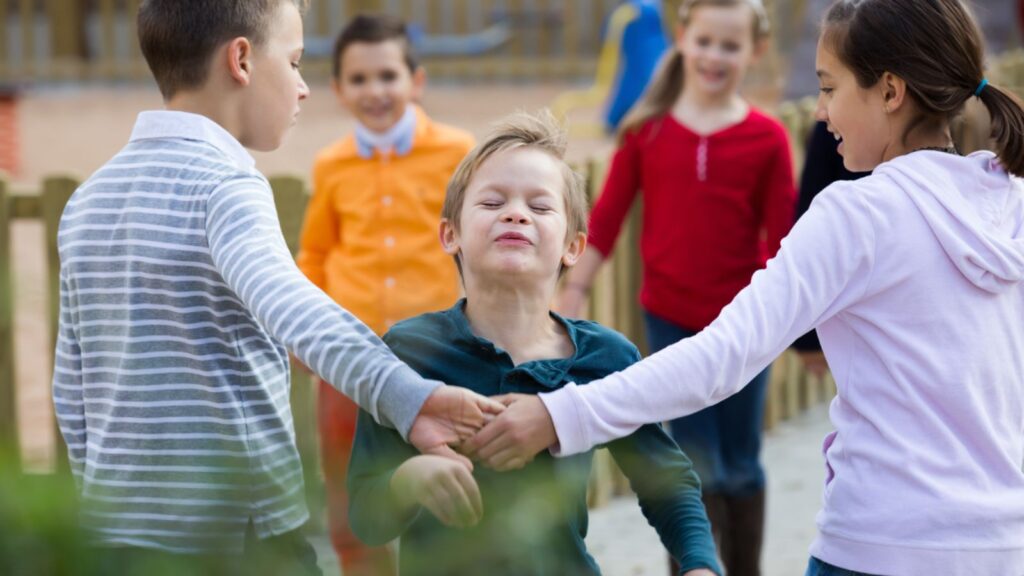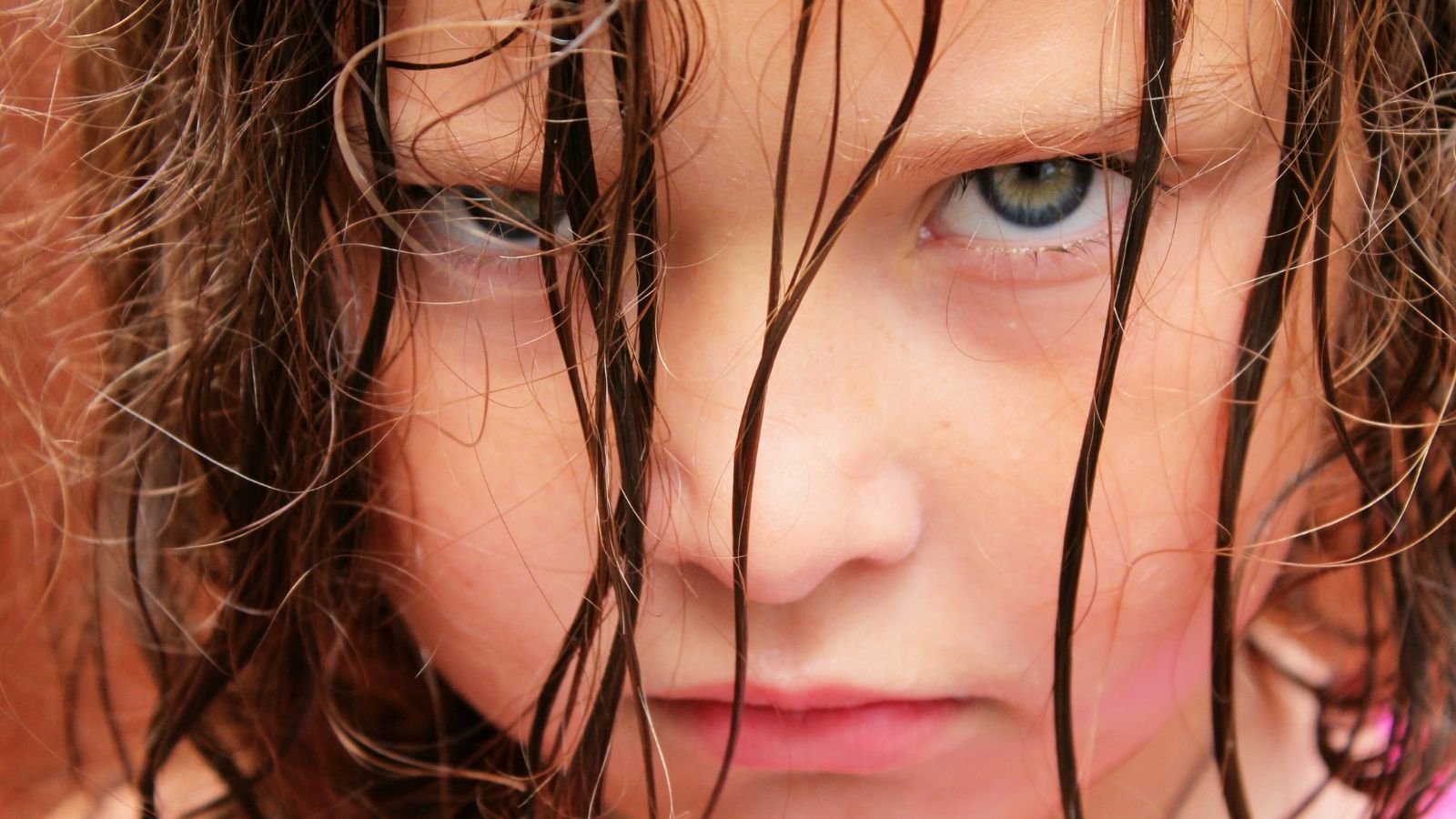As a parent, you’re always looking out for the well-being of your child. It’s important to keep an eye on their development, making sure they’re maturing at a healthy rate and growing into well-adjusted humans. Turning a blind eye to potential warning signs of violent behavior, as upsetting as it may be to face, will only end up causing more harm.
Here are 18 warning signs that your child may turn out to be violent and dangerous and ways to intervene as soon as possible.
Harming Animals

As was mentioned before with Ted Bundy, a child who harms animals or other living things, such as insects, can warrant a major warning. The lack of empathy for living creatures shows a chip missing and will very likely lead straight to harming humans as they get older unless something changes.
Severe and Disproportionate Outbursts

If your child is reacting overly strongly to stimulus that doesn’t seem to warrant such anger or emotion, this could be a sign of future violence.
Social Isolation

Detachment from one’s community, especially in such key developmental years, can build up a lot of anger toward other people. It can make a child feel extremely resentful of their lack of a place in society and not feel an emotional connection to others, leading to a lack of empathy. It’s so important to socialize a child early on to try and instill those key qualities in them.
Emotional and Physical Aggression

Attempting to use violence or cruel words to cut someone down shows a compassion deficiency that could lead to worse issues as the child gets older. Children should not have the hard shell that adults develop as they experience the world.
Impulsive Behavior

While this could be indicative of so many things, demonstrating impulsive behavior frequently can be a sign of future violence to look out for. Kids who are consistently incapable of controlling their actions pose a threat to themselves and others. Behavioral manifestations may include pushing or shoving other kids, taking toys away, or damaging property.
Feeling Rejected

Feeling rejected and isolated from one’s peers can lead a child to build resentment that festers over time. If your child is struggling with this, the best thing you can do is encourage them to talk to you about it and provide a supportive ear and a shoulder to cry on.
Showing Interest in Violent Media

As parents, we need to be so careful about what media our children are allowed to consume. In an age of social media almost being an epidemic, there is so much out there that can easily slip through the cracks of whatever blocks parents may have up. Witnessing violence on TV or in video games makes us more immune to the sight of it and hardens something that should, for children at the very least, remain soft.
Lack of Empathy

This is a big one. If your child hurts someone, intentionally or otherwise, they should feel guilty in some manner. But if the child doesn’t seem to care that they caused someone pain, they lack the empathy chip and could become violent later on if they aren’t already.
Self-Harm

While self-injurious behavior does not always correlate with harming others, it’s very dangerous and should be taken seriously regardless. If a child is harming themselves physically, they are clearly suffering severe emotional distress that needs to be looked into. Sometimes, this can turn into harming others because the sensation of inflicting that pain temporarily soothes the emotional stress in some way.
Hard to Discipline

All sorts of children with a range of personalities can cause problems when being disciplined. It’s human nature to struggle against that sort of thing. But if it leads to the child being overly aggressive and gets to the point where you’d rather not discipline them at all than deal with it, this could be a big concern.
Destructive Behavior

Stealing, destroying property, and bullying are all destructive behaviors that can point toward a dark future. Anything hurtful to others that the child is knowingly doing should be seen as a bad sign.
Showing Interest in Weapons

Kids love pirates and playing with swords, pretending to be cowboys with pistols, and so on. That’s pretty normal. When it veers into obsession or a genuine desire to have and use weapons, that’s when it gets into risky territory.
Spending Time with Violent Kids

Who your child spends time with is wildly important as it will influence how they view the world and behave. If your kid is hanging around kids you know are bullies or bad news in some way, it’s likely your child is or will soon be participating. Your number one priority needs to be protecting your child.
Uncontrollable Temper Tantrums

This demonstrates a lack of self-control and is a sign of recklessness. If your child seems to be completely out of control, they could be struggling and need help managing their emotions better.
Performing Poorly in School

A child who performs poorly academically is by no means inherently a dangerous child. However, this can be one contributing factor that, when paired with other things, is a red flag. This is especially the case if the child was performing very well and then suddenly began to decline.
Acute Irritability

Being disproportionately irritable more often than not can be a sign a child has more going on than perhaps they should. Occasional irritability is totally normal, but frequently and over small things is not.
Causing Frequent Extreme Disruption

Perhaps your child is constantly kicking down sandcastles their siblings make at the beach or is making a mess of games other children are playing in school. If they struggle to show the necessary level of self-control, it’s an issue that needs addressing.
Threatening Violence

Threats are a big deal and should be taken seriously. If a child is making threats of violence or harm in some way, in person, online, or otherwise, it is very worrying. A threat is just one step closer to the actual act of violence.
18 Behaviors Branded as Low-Class by Society

18 Behaviors Branded as Low-Class by Society
18 Reasons Gen Z Believes They Should Be Paid Without Working

18 Reasons Gen Z Believes They Should Be Paid Without Working
18 Ways Parents Raise Failed Adults

18 Ways Parents Raise Failed Adults
18 Work Practices Millennials & Gen Z Refuse to Accept

18 Work Practices Millennials & Gen Z Refuse to Accept
23 Personal Topics You Should Never Share With Others

